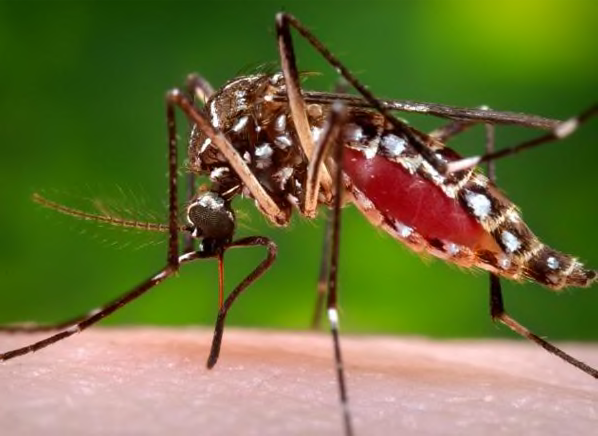Sign In

Menu
Suggested Searches
Recent Searches
Suggested Searches
Product Ratings
Resources
Chat With AskCR
Resources
All Products A-ZThe payment for your account couldn't be processed or you've canceled your account with us.
Re-activateMy account
Sign In
My account
Sign In


This summer you took your chances if you visited the Caribbean. If you were bitten by a mosquito carrying a disease called chikungunya, you could be very sick for 7 to 10 days with fever and severe joint pain. And that is exactly what happened to nearly 600 people, who then carried the disease back to the U.S. with them. Nearly every state has reported cases from travelers, with the most in Florida, New York, and New Jersey.
And now there are mosquitoes in Florida that carry the disease, and they're waiting to infect more Floridians. It's just a matter of time before chikungunya travels to more states, because parts of the U.S. have the right type of mosquitoes for that task.
Health officials are worried about this disease for a few reasons. Most people recover, that's true. But it can cause a crippling arthritis that persists for months, says Roger Nasci, Ph.D., chief of the arboviral diseases branch in the division of vector-borne diseases at the national Centers for Disease Control and Prevention. Also, unlike West Nile virus, where about 1 in 5 of the people who get infected gets sick, about three-quarters of the people who get infected with chikungunya develop symptoms, he says.
Add to that the fact that the insects that carry the disease in the U.S., the Asian tiger mosquito and the yellow fever mosquito, bite during the day as well as at dawn and dusk.
Learn the best way to stop bug bites and limit your risk from chemicals. And find out which insect repellents kept the bugs at bay best in our tests.
But help may be on the way, eventually. There are currently no licensed vaccines for chikungunya virus, but a study published today in The Lancet says one shows promise. A trial involving 25 healthy volunteers ages 18 to 50 showed that even the lowest doses of the vaccine were effective and only a few people reported mild to moderate side effects.
The next stage would be for a much larger trial to be done. Because the cost of developing a vaccine such as this is estimated to be $200 million to $500 million, it's not certain whether it will become an option for consumers in the near future. But it should be encouraged, especially if chikungunya becomes a major health threat, says Ann Powers, Ph.D., of the CDC.
Meanwhile, what can you do to protect yourself? Consumer Reports recommends taking these steps.
If you get a mosquito bite, use cool compresses and an over-the-counter steroid cream, such as hydrocortisone (Cortizone-10 and generic), to ease itching. Applying calamine lotion or dabbing on undiluted white vinegar might also help, says Marvin M. Lipman, M.D., Consumer Reports' chief medical adviser. See a doctor if you develop a fever, a headache, body aches, nausea, vomiting, swollen lymph glands, or a rash on your torso.
—Sue Byrne
This mosquito-borne disease (pronounced chik-en-gun-ye) was first identified in what is now Tanzania in 1952 following an outbreak in a Swahili village. The name comes from the regional word used to describe the symptoms, meaning "that which bends up" or "walking bent over," referring to the stooped posture of the patients.
 Build & Buy Car Buying Service
Build & Buy Car Buying Service
Save thousands off MSRP with upfront dealer pricing information and a transparent car buying experience.
 Get Ratings on the go and compare
Get Ratings on the go and compare
while you shop